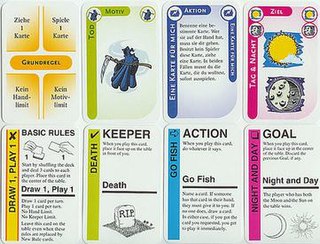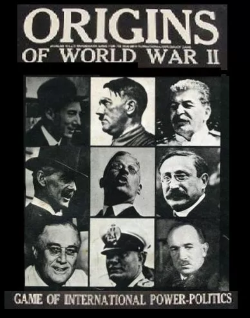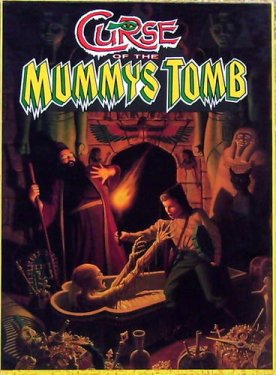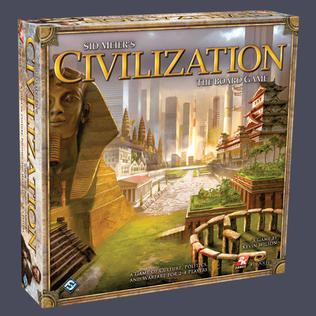Andrew J. Looney is a game designer and computer programmer. He is also a photographer, a cartoonist, a video-blogger, and a marijuana-legalization advocate.
Martian Chess is an abstract strategy game for two or four players invented by Andrew Looney in 1999. It is played with Icehouse pyramids on a chessboard. To play with a number of players other than two or four, a non-Euclidean surface can be tiled to produce a board of the required size, allowing up to six players.

Fluxx is a card game, played with a specially designed deck published by Looney Labs. It is different from most other card games, in that the rules and the conditions for winning are altered throughout the game, via cards played by the players.
Risk 2210 A.D. is a 2–5 player board game by Avalon Hill that is a futuristic variant of the classic board game Risk. Risk 2210 A.D. was designed by Rob Daviau and Craig Van Ness and first released in 2001. In 2002, it won the Origins Award for "Best Science Fiction or Fantasy Board Game of 2001".
Chrononauts is a family of card games that simulates popular fictional ideas about how time travellers might alter history, drawing on sources like Back to the Future and the short stories collection Travels Through Time. The game was designed by Andrew Looney and is published by Looney Labs. The original game and a variant each won the Origins Award for Best Traditional Card Game.
Looney Labs, Inc. is a small game company based in College Park, Maryland, United States. It is named after its founders, Andrew Looney and Kristin Looney, and is best known for creating the Fluxx line of card games. The company has three U.S. patents and eight Origins Awards.
Button Men is a dice game for two players invented by James Ernest of Cheapass Games and first released in 1999.

The Russian Campaign is a strategic board wargame published by Jedko Games in 1974 that simulates combat on the Eastern Front during World War II. Avalon Hill later bought the game and produced several editions.

Vinci is a board game designed by Philippe Keyaerts. It resembles a diceless variant of Risk with variable special abilities and an original decline mechanic, and is also similar in some ways to History of the World. The game's name means "to be conquered" in Latin. In 2009, the game's mechanics were re-implemented with several changes and a fantasy-oriented theme as Small World, also credited to Keyaerts, and published by Days of Wonder.

Origins of World War II is a board game published by Avalon Hill in 1971 that combines a wargame with international diplomacy to simulate the diplomatic conditions that led to the outbreak of World War II.

Hitler's War is a strategic level World War II war game for 2 or 3 players, first published by Metagaming Concepts in 1981, and then by Avalon Hill in 1984.
StarCraft: The Board Game, published by Fantasy Flight Games, is a game inspired by the 1998 computer game StarCraft. Players take control of the three distinctive races featured in the video games, the Terrans, the Protoss, or the Zerg, to engage in battle across multiple worlds in order to achieve victory. Each of the three races features a fairly different playing style. A prototype of the game was shown in BlizzCon 2007, with pre-release copies sold at Gen Con 2007 and Penny Arcade Expo 2007. It was publicly released in October 2007.
We the People is a board wargame about the American Revolution, published by Avalon Hill in 1993 and designed by Mark Herman. We the People was the first wargame to use cards as the primary way to control the pace and tempo of play, with a strong element of fog of war through the hidden card information. This started a new genre of wargames that have emphasized competitive play and a strong historical narrative.

Curse of the Mummy's Tomb is a pulp fiction board game published by Games Workshop in 1988. It features a three-dimensional board, representing an Egyptian pyramid, with two consecutively smaller playing areas above the bottom board. The aim of the game is to reach the top of the Pyramid of Khonsu, complete the tasks within and obtain the Elixir of Life. In addition to traps, creatures and treasures, there can be encounters with the deadly Mummy itself.

Imperial is a German-style board game designed by Mac Gerdts in which the object is to accumulate wealth in the form of bond holdings in successful countries and cash. Players take on the role of international financiers who purchase government bonds in the six pre-World War I empires of Austria-Hungary, France, Germany, Great Britain, Italy, and Russia. The principal bondholder of a nation gains control of its government and can order importation or production of armaments and ships; maneuvering of military units; construction of factories; and taxation. During play, an investor card is passed around which allows the purchase of additional bonds. A rondel – a wheel-shaped game mechanism with eight different options – is used to determine the options available to a country. The game box states that it is for 2–6 players, but a developer-supported variant allows play with seven. Imperial 2030 is a follow-up game released in 2009 with similar mechanics.

RoboRally is a board game for 2–8 players designed by Richard Garfield and published by Wizards of the Coast (WotC) in 1994. Various expansions and revisions have been published by both WotC and by Avalon Hill.

Sid Meier's Civilization: The Board Game is a 2010 board game created by Kevin Wilson based on the Sid Meier's Civilization series of video games and published by Fantasy Flight Games. While the previous board game based on Sid Meier's Civilization, published by Eagle Games in 2002, was based on Civilization III, the 2010 version takes its primary inspiration from Civilization IV. Its expansions, Fame and Fortune and Wisdom and Warfare, also began to incorporate concepts derived from Civilization V.
Portal chess is a chess variant which uses at least two fairy pieces called portals. These pieces can be easily added by using poker chips, coins or other suitably sized objects. The game seeks to incorporate portals to allow pieces to teleport around the board. Apart from the portals and their ruleset, the game often plays like ordinary chess, including the en passant capture, castling, and promotion.

Armada is a board game published by Jeux Descartes in 1986. After Jeux Descartes published a second edition, Eurogames published a third edition in 2001 that changed the theme of the game from colonisation to treasure-seeking pirates.

1918, subtitled "Operation Michel: March 21–30, Germany's Last Chance in the West", is a board wargame published by Simulations Publications Inc. (SPI) in 1970 that simulates Operation Michael, the final German offensive on the Western Front in which they tried to win the war or at least force peace talks before American soldiers started to arrive on the Western Front in force. The game was well received by critics, but did not sell well.










